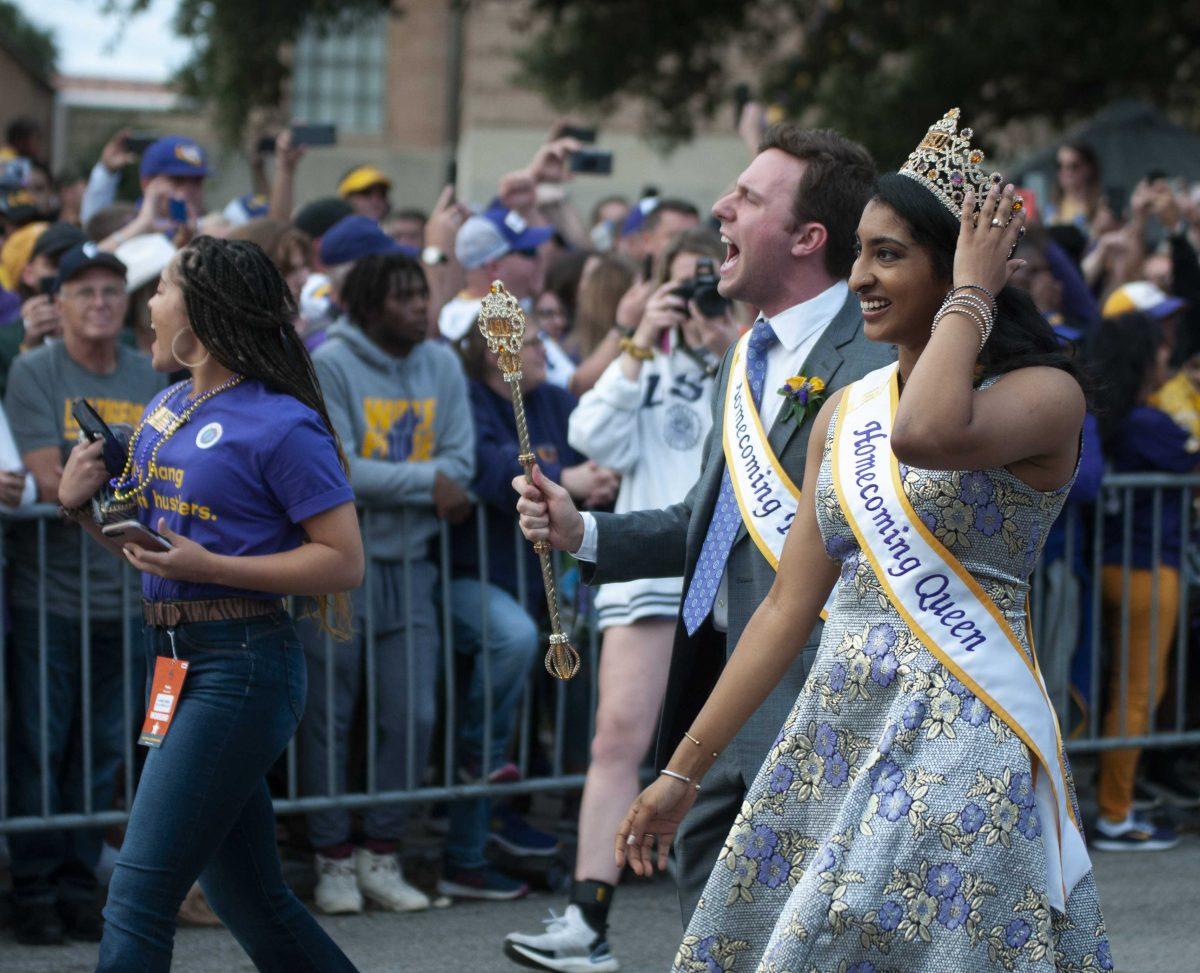Nearly a century after LSU held its first homecoming court in 1925, Student Government senators Angel Puder and Jack Green authored a resolution to include students who cannot identify themselves correctly within the gender options presented by the Homecoming Court.
Political science sophomore Angel Puder said the current system is binary, forcing students who are non-binary or gender nonconforming to choose a gender category that they don’t identify with.
“That’s the main issue right now, and what we were trying to address with the resolution we were writing,” Puder said.
The Homecoming Committee has been aware of the problem regarding a lack of identifications options but waited for student body support before tackling the issue.
“We were reached out to by the Homecoming Committee because they recognized the issue last year, and they had a proposal they were thinking of doing.” Puder said. “They were trying to see student support for it, so that’s why they came to us now.”
The resolution focuses on the eradication of sex or gender in the application process for the Court. Green would like to see Homecoming Court evolve from the traditional practices and for the gender of a candidate to not impact the decision process.
“Ultimately what we would like to see is Homecoming Court go away from the traditional gender binary and accept candidates based upon how they represent the student body and their qualifications,” Green said. “Ideally one day, a Court that represents what the student body looks like without regard to strict male/female categories.”
The senators were unable to keep all the measures they had wished for in the final version of the resolution but still think the items that remained are important and will allow for a more inclusive process.
“We wanted them to not regard gender and sex in the application process, but when we passed the resolution that stayed, and they can still consider it in the selection process,” Puder said. “So when they are selecting the Court, they can consider gender identification to make the Court seem equal. The main things that stayed in the resolution was not considering it for the application process and for them to do a better job in application outreach, because usually a lot of people don’t know that they can apply. We advised them to do more organizational visits”
Puder said Homecoming Committee members made visits to organizations with historically underrepresented student populations prior to the Homecoming Court applications being released. Puder hopes this allowed a more diverse array of students to apply for the Court.
The resolution also called for selected Homecoming Court members to be identified as “Homecoming Royalty,” with the winners being given the option to retain the title of “Homecoming King” or “Homecoming Queen” if they would like to. Green hopes that this, and other measures mentioned in the resolution, can be implemented in a way that prompts no controversy.
“Something else talked about in the resolution that we would like to see is introduction of the term ‘royalty’ in the ‘king’ and ‘queen’ conversation,” Green said. “If somebody is nonbinary then the default term should be royalty. We want it done with a lot of planning in mind and be really well executed, so there’s not a lot people can criticize.”
The Homecoming Committee reserves the right to pick and choose what they’ll implement from the resolution.
“Everything to do with Homecoming Court comes from the Homecoming Committee, so everything they do is decided through processes of their own, so this resolution was just me and Senator Puder’s suggestions for what Student
Government would like to see them do,” Green said. “Whatever we do, they can take and leave whatever they want from the resolution, this is just Student Government’s official statement on how we’d like to see it.”
Not much has changed in this year’s Homecoming Court, but Puder and Green hope in the future more students will be prompted to apply for the Court because of the more inclusive measures being added that were discussed in the resolution.
“The only thing they are implementing this year is that in the application they did not ask for the people’s gender, they did ask for their pronouns, but they did not ask for gender,” Puder said. “We’ll be having a discussion with them, along with other SG members, after this homecoming, so this homecoming will probably look similar to how other homecomings have looked in the past, but we are having a discussion after that to get the plannings and the logistics together for next year.”
“So at the end of the day we just want inclusivity and we hope moving forward that that is always kept in mind, how can we make students feel more represented going forward,” Green said.
Taylor Ellis also contributed to this report.
LSU SG senators author resolution urging gender inclusive changes to homecoming court
By Nick Frewin
October 22, 2020
The LSU homecoming King and Queen walk down Victory Hill on Saturday, Oct. 12, 2019.





